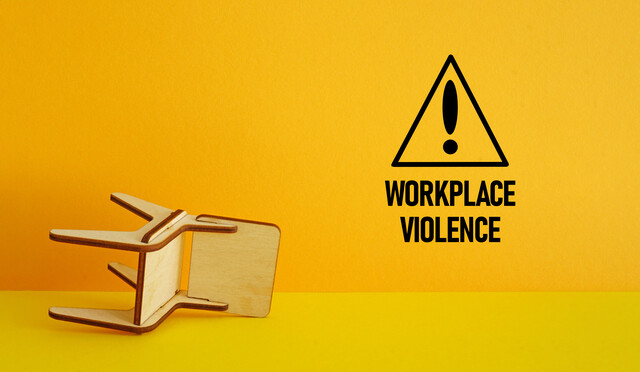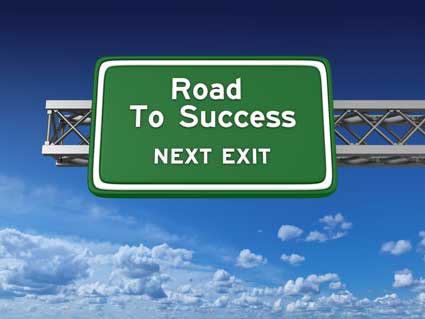|
For example, if our parents held strong beliefs that physical labor was more important than sitting behind a desk, we may find ourselves making comments in situations when this issue is brought up like our parents would. We may have the same prejudices, likes, dislikes, and beliefs as our parents did. When we behave this way, we are said to be "operating out of our parent ego state." We are responding in a way that our parents would, either by word or action. How many times have you said or done something and then thought, "I have become my parents?" Any time your response mirrors them, you are behaving in that ego state. |
| For example, if you don't do well on a test and beat yourself up, chances are you are coming from you Critical Parent. If you drop something and grumble about your stupidity, chances are good that is Critical Parent. Anytime you are criticizing yourself, look at it and you will probably recognize your parents. |
Critical Parent doesn't always display itself by words. It can also be by actions. If someone does something you don't like and you roll your eyes that also can be Critical Parent. A heavy sigh because someone is too slow in front of you at the grocery can be the Critical Parent, as well. Critical Parent shows itself in a variety of ways, both verbally, and by action or inaction.
| For example, if you were asked to map out the quickest way to the Smoky Mountain National Park from your home, you simply would look at all the data and determine the best way to get there. That would be a decision based on your Adult Ego state. However, if your Parent Ego was making the decision and, "For years the family has always taken a different route," you may resist a change, and this decision is based on ingrained parental beliefs, not objective data. The Parental way may be longer, but if you are trying to persuade someone in this Parental ego state to change directions, you may have a tough time. |
The last ego state is the Child. The Child is that little person inside of us that is forever young. When we are in the Child state, we are said to be acting and responding to situations much like we would have as a 5-year-old. No denying that this side does exist and can be triggered in all of us. We have all heard the expression that someone is acting like a child. In Transactional Analysis, that would be explained by saying the person is coming from their Child ego state.
Within the child ego state there are four parts: The Adaptive Child, The Natural Child, the Rebellious Child and the Little Professor.
The Adaptive Child is the child who follows instructions given by parents or adults, such as: Raise your hand in school if you want to speak; don't yell inside; say please and thank you. Any time we are molding our behavior to meet a social standard, we can be said to be in our Adaptive Child.
The Rebellious Child is the child who acts out, and as the name implies -- rebels. When they don't like something, you know it.
The Little Professor is that part of our Child ego state that asks questions. It doesn't have all the facts, but speculates on what the answer is.
So How Does This Work?
Eric Berne believed that for people to successfully communicate they needed to come from the same ego state. Each unit of communication was called a transaction, and each transaction had a stimulus and a response.
For example, if I ask you where is my watch, this would be deemed an objective question and one that is coming from my Adult Ego state. I am not doing anything but asking for factual information. Where is my watch?
If your response is: "Your watch is on the table," you are said to be giving an Adult response from your Adult ego state since you are simply relaying objective fact. Using Berne's diagram, the transaction would look like this:
The Stimulus is the question, "Where is my watch?" (S) and the Response is, "On the table." (R).
This transaction is said to be Complementary, because both parties are coming from the same ego state: Adult.
Let's say that I ask you, "Where is my watch?" and you respond, "How do I know? Don't tell me you have lost it again!" The diagram would look like this:
| For example, let's say that you and I are talking, and we are getting along fine. We are trying to figure out how to solve a computer glitch. We are sharing facts and analyzing the problem. We are stumped and finally decide to call in a professional. You suggest Mr. A. Even though he is highly qualified and is the best person for the job, I object and say I refuse to use him or pay for him since I have heard about him before because my Dad used him . I have never used him personally. So I have adopted my father's opinion of his work and I am refusing to use him -- not because of any objective data. When this happens our Adult transaction is said to be contaminated on my side since my Adult is being contaminated by beliefs and opinions of my father. My parent is contaminating my Adult. I have stopped using rational and logical behavior as an Adult and have allowed parental beliefs to interfere. It makes no difference what you say or what the facts are, I won't use him. My Parental beliefs are affecting my objectivity. If I were operating in my Adult mode, I would not allow this to happen. I would evaluate the situation on the basis of objective data, and not what Dad had told me. When this happens, effective communication can break down. |
Chances are good that the rebellious child has come out and contaminated our Adult conversation. Both the Parent and the Child Ego states can contaminate a transaction, individually, or together. A Double contamination would look like this:
Anytime you are communicating with someone and they are not responding appropriately, the best way to diffuse the situation is to stay in your Adult and refuse to enter the conflict. For example, going back to our watch situation: If I asked you where my watch was from the Adult Ego state and you replied as the Critical Parent and slammed me, I could choose to engage and answer from my Critical Parent and the fight would be on. But if I want to maintain peace, I would realize that this is what is happening, and I would simply stay in my Adult ego state and not get hooked into the drama. I might not even respond, but simply move on to something else, or give a response such as, "I agree, I need to be more careful where I leave it." I would not give a response that would engage the battle. Being mindful of the ego state you are coming from, and the ego state the other person is coming from, can help you have more conflict-free communication.






























